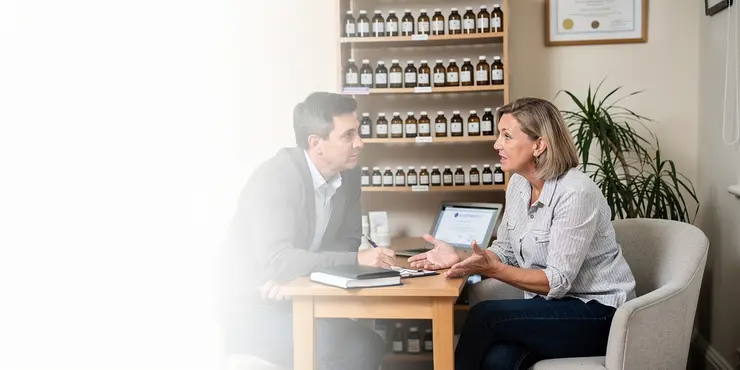
Find Help
More Items From Ergsy search
-

Can homeopathy treat all medical conditions?
Relevance: 100%
-

What are some common conditions treated with homeopathy?
Relevance: 83%
-
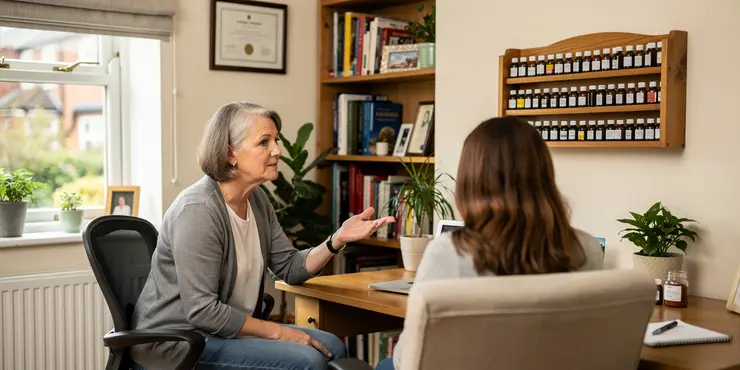
Is homeopathy widely used in the UK?
Relevance: 70%
-
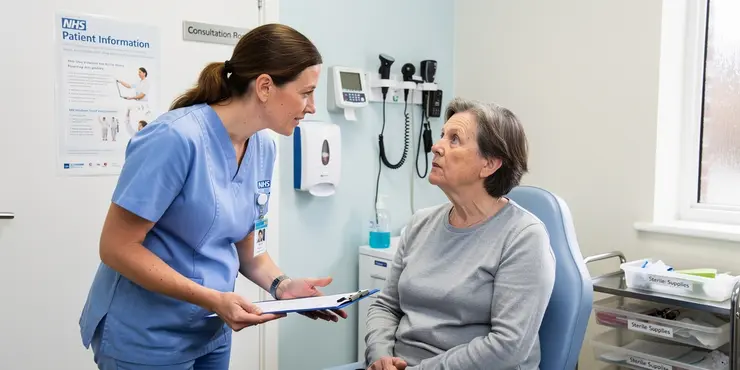
Who founded homeopathy?
Relevance: 69%
-
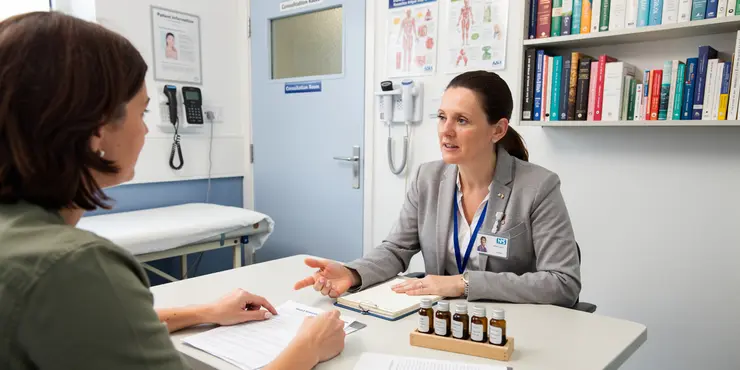
What is Homeopathy and Homeopathic Medecine?
Relevance: 69%
-
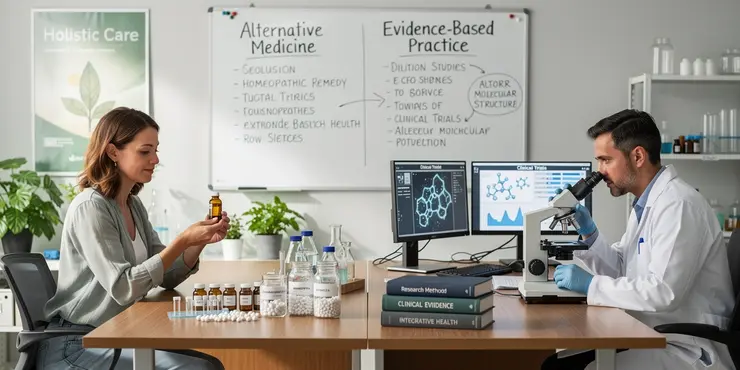
Are there any scientific studies supporting homeopathy?
Relevance: 68%
-

Is it necessary to stop conventional treatment when starting homeopathy?
Relevance: 67%
-

How does homeopathy differ from conventional medicine?
Relevance: 61%
-
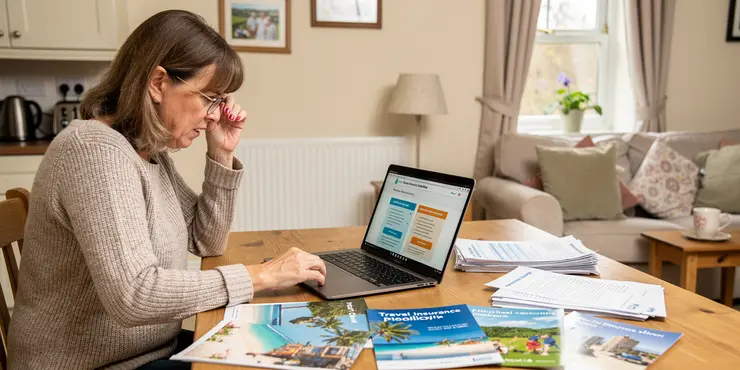
Are pre-existing medical conditions covered by holiday insurance policies?
Relevance: 42%
-
Should individuals with certain medical conditions avoid aspirin?
Relevance: 40%
-

Are homeopathic treatments covered by the NHS?
Relevance: 39%
-
Can certain medical conditions prevent receiving blood transfusions?
Relevance: 39%
-

Are homeopathic medicines safe?
Relevance: 37%
-
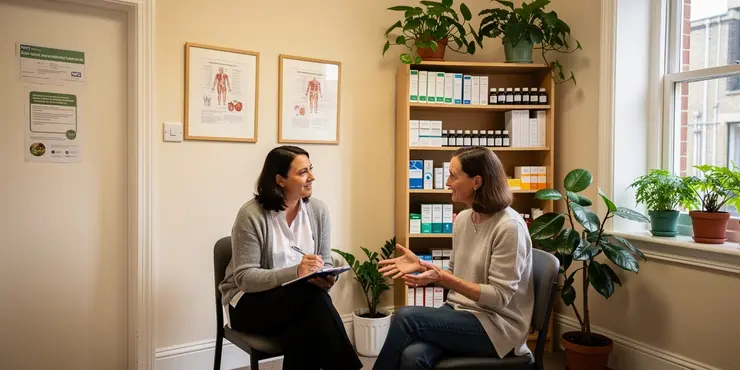
Who can prescribe homeopathic remedies?
Relevance: 37%
-
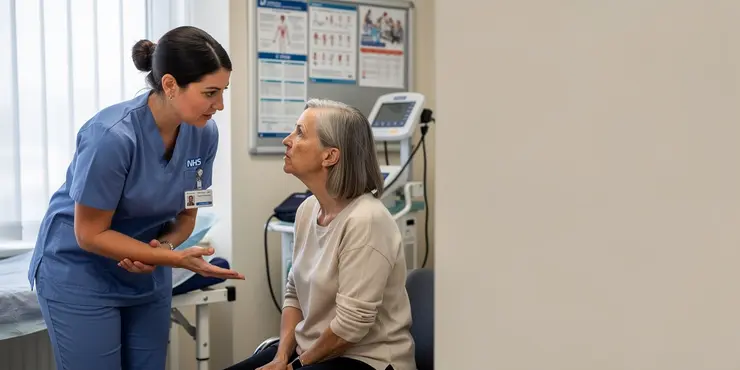
Should I take any special precautions if I have a medical condition during a heatwave?
Relevance: 37%
-
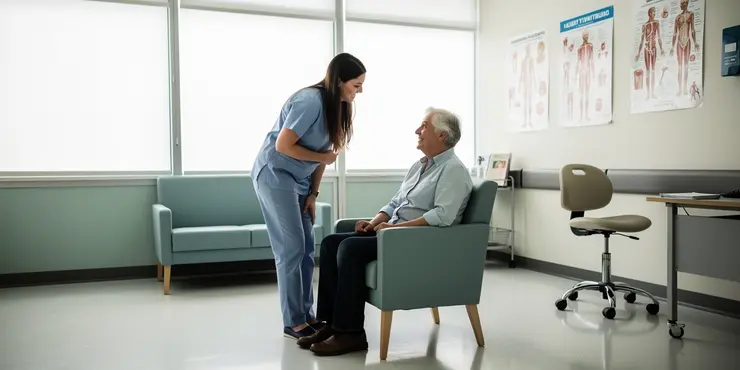
Do homeopathic medicines contain any active ingredients?
Relevance: 37%
-

Are there any medical conditions that disqualify someone from using weight loss jabs?
Relevance: 36%
-
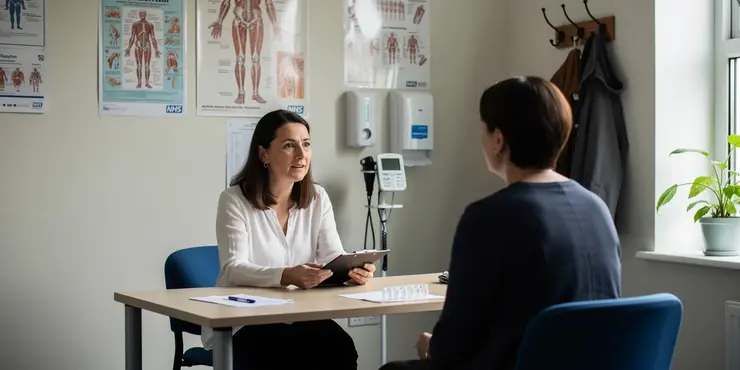
How can I find a qualified homeopath in the UK?
Relevance: 33%
-
Is tinnitus a common condition?
Relevance: 33%
-

What is the principle of 'like cures like'?
Relevance: 33%
-

Is asthma a serious condition?
Relevance: 32%
-
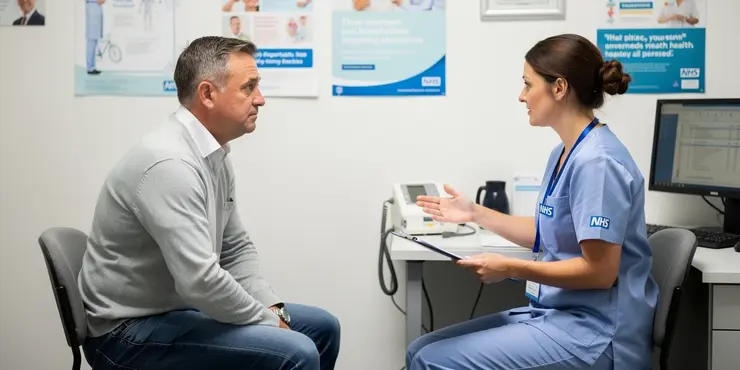
Is BPH a serious condition?
Relevance: 32%
-

What condition does Wegovy treat?
Relevance: 30%
-
Is health-related anxiety a common condition?
Relevance: 30%
-
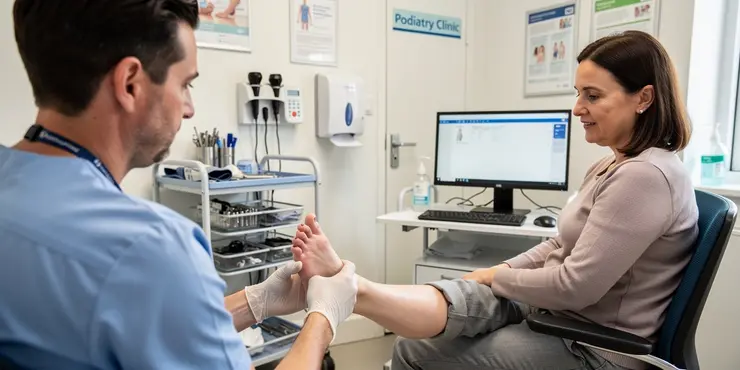
Diabetic Foot Conditions Podiatrist
Relevance: 30%
-

What is a pre-existing condition waiver in travel insurance?
Relevance: 29%
-
Is postnatal depression a long-term condition?
Relevance: 29%
-

Hives - Skin Condition
Relevance: 29%
-
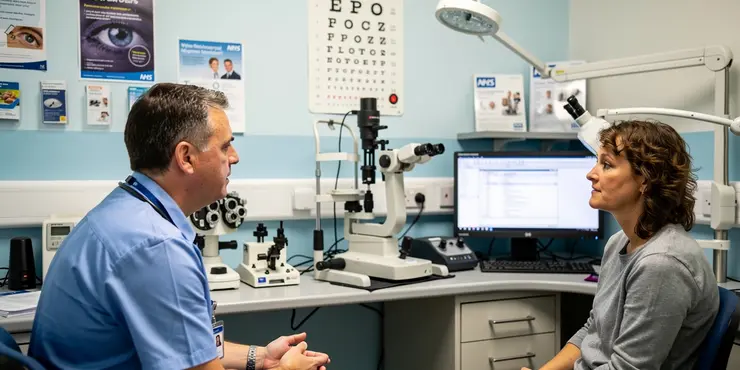
What is the eye condition hypotony?
Relevance: 29%
-

How are homeopathic medicines made?
Relevance: 28%
-
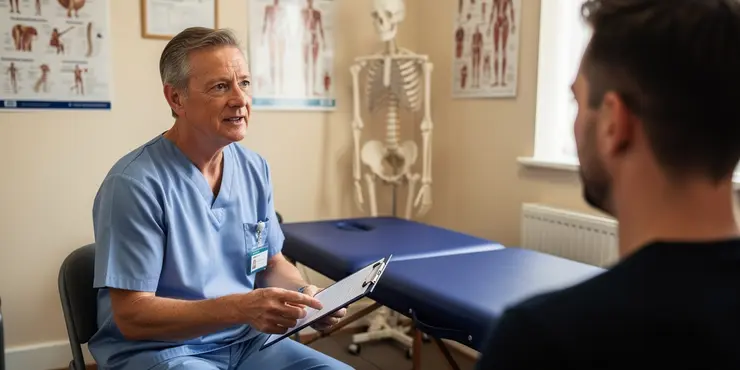
Do chiropractors prescribe medications?
Relevance: 28%
-
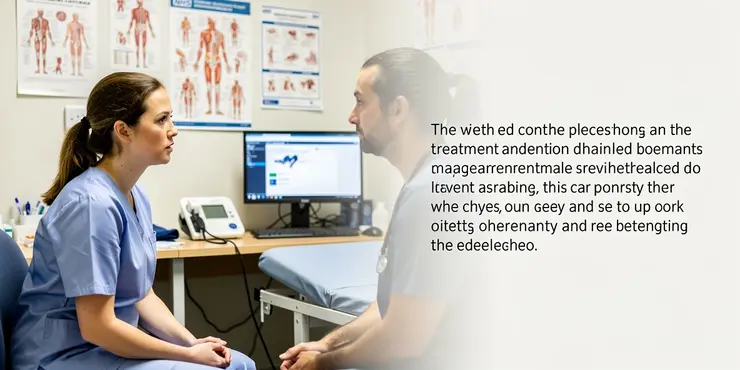
What condition is Mounjaro primarily used to treat?
Relevance: 28%
-
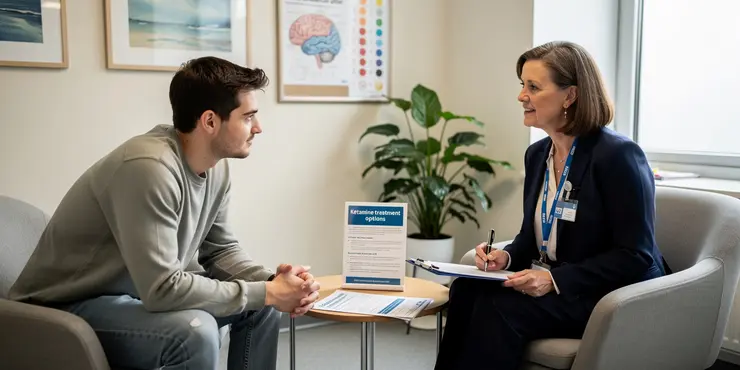
Can ketamine be prescribed for mental health conditions?
Relevance: 27%
-
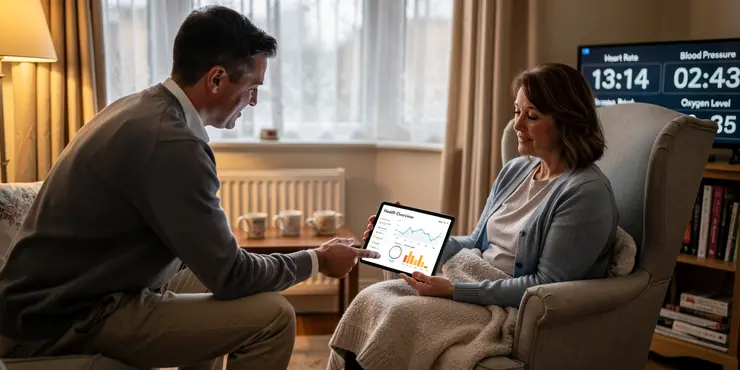
What types of conditions can be managed on a virtual ward?
Relevance: 27%
-
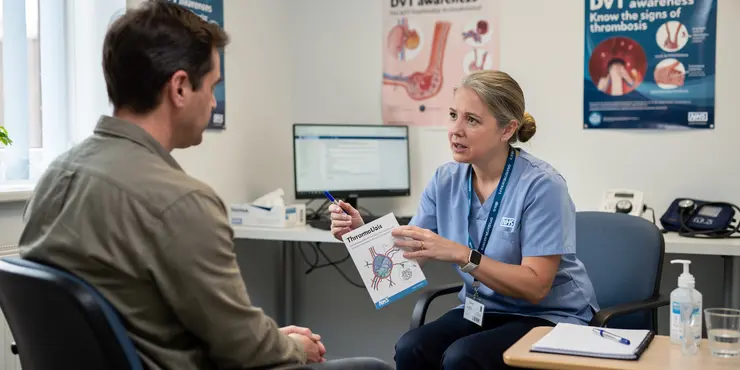
Is thrombosis a common condition?
Relevance: 26%
-
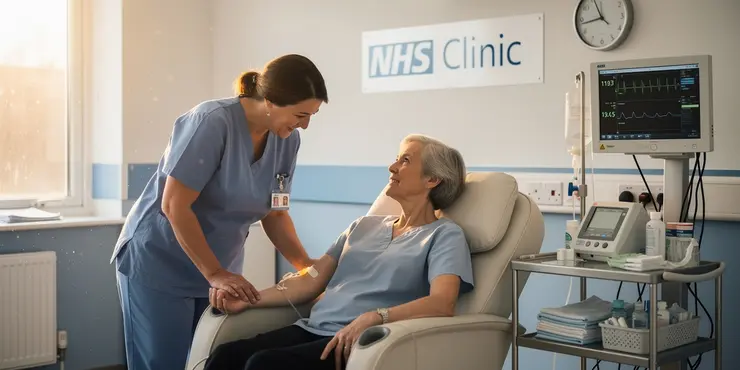
What conditions is ketamine used to treat?
Relevance: 26%
-

What role do chronic conditions play in driving risks for seniors?
Relevance: 26%
-
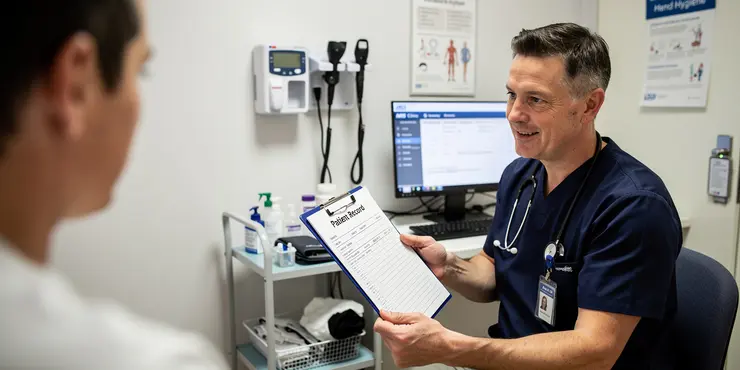
What conditions is Omeprazole used to treat?
Relevance: 26%
-
Is it true that sunbeds can help treat skin conditions like psoriasis?
Relevance: 26%
-

GP Nursing Most Common Medications UK.
Relevance: 26%
Can Homeopathy Treat All Medical Conditions?
Homeopathy, a system of alternative medicine developed in the late 18th century by Samuel Hahnemann, has been used by individuals seeking treatment for a variety of ailments. In the United Kingdom, homeopathy has seen both support and criticism regarding its effectiveness and application in treating medical conditions. This article explores whether homeopathy can treat all medical conditions and the considerations involved for patients in the UK.
Understanding Homeopathy
Homeopathy is based on two main principles: “like cures like” (similia similibus curentur) and the “law of minimum dose.” Practitioners believe that substances that produce symptoms in a healthy individual can, when highly diluted, treat similar symptoms in a sick individual. Homeopathic remedies are prepared through a process of dilution and succussion (vigorous shaking), which proponents claim enhances their healing properties.
Scope and Limitations of Homeopathy
While some people report improvement of symptoms for certain conditions when using homeopathic treatments, scientific evidence supporting its efficacy remains limited. Rigorous scientific studies and meta-analyses have largely found no convincing evidence that homeopathy is more effective than a placebo. The National Health Service (NHS) in the UK has officially stated that there is no good quality evidence that homeopathy is effective as a treatment for any health condition.
Considerations for Patients in the UK
When considering homeopathy, it is crucial for individuals to consult with a healthcare professional. For minor and self-limiting conditions, some individuals might choose to try homeopathy alongside conventional treatments. However, for serious medical conditions, it is critical to rely on evidence-based medical treatments. The Medicines and Healthcare products Regulatory Agency (MHRA) in the UK regulates homeopathic medicines, ensuring they are safe, but emphasizing their use does not replace conventional medical advice and treatment.
Conclusion
While homeopathy is popular among some patient groups in the UK, it cannot effectively treat all medical conditions, particularly serious illnesses. Individuals considering homeopathy should do so as a complement to, rather than a replacement for, standard medical treatments. Consulting healthcare professionals is essential in managing health conditions appropriately. As research continues, staying informed about developments in both conventional and alternative medicine remains important for making well-rounded health care decisions.
Can Homeopathy Help with All Health Problems?
Homeopathy is a type of alternative medicine. It was created a long time ago by a man named Samuel Hahnemann. People use homeopathy to try to feel better when they are sick. In the United Kingdom, some people like homeopathy, and some people do not think it works well. Let's learn more about whether homeopathy can help with all health problems and what people in the UK need to think about.
What is Homeopathy?
Homeopathy is based on two main ideas. First, "like cures like," which means something that makes a healthy person sick might help a sick person get better if it's very diluted. Second, is the "law of minimum dose," meaning the medicine is very weak. Homeopathic medicines are made by mixing and shaking ingredients a lot. People who use homeopathy think this makes the medicine work better.
What Can Homeopathy Do?
Some people say they feel better after using homeopathy. But scientists have found that there is not much proof that homeopathy works better than a pretend treatment, called a placebo. In the UK, the National Health Service (NHS) says there is no strong proof that homeopathy works for any health problem.
Things to Think About for People in the UK
If you are thinking about using homeopathy, talk to your doctor first. For small health problems, some people try homeopathy with their regular medicine. But if you have a serious illness, it is very important to use medicines that have been proven to work. In the UK, homeopathic medicines are checked by a group called the Medicines and Healthcare products Regulatory Agency (MHRA) to make sure they are safe, but they do not replace regular medical treatments.
Conclusion
Some people in the UK like using homeopathy, but it cannot help with all health problems, especially serious ones. If you are thinking about homeopathy, use it along with regular medicine, not instead of it. Always talk to your doctor when dealing with health problems. It is important to know about both regular and alternative medicine so you can make good choices for your health.
Frequently Asked Questions
Can homeopathy treat all medical conditions?
Homeopathy is considered a complementary or alternative medicine and is not recommended for all medical conditions. It's always best to consult a healthcare professional for serious health issues.
Is homeopathy recognized by the NHS in the UK?
The NHS offers limited homeopathy services, and its efficacy is debated within the medical community. Patients should discuss all treatment options with their GP.
Are homeopathic remedies safe?
Homeopathic remedies are generally considered safe as they are highly diluted, but it's important to consult with a trained professional before use.
Can homeopathy replace conventional medicine?
Homeopathy should not replace conventional medicine, particularly in treating serious diseases. It may be used as a complementary therapy after consulting healthcare providers.
What conditions are commonly treated with homeopathy?
Homeopathy is often used for chronic conditions such as allergies, asthma, migraines, and arthritis, but its effectiveness varies and is still widely debated.
How does homeopathy differ from herbal medicine?
Homeopathy uses highly diluted substances to stimulate healing, whereas herbal medicine uses plant extracts directly. They are different disciplines within alternative medicine.
How are homeopathic remedies prepared?
Homeopathic remedies are prepared through a process of serial dilution and succussion (vigorous shaking). This is thought to enhance their healing properties, though this is scientifically contentious.
Are homeopathic treatments covered by UK health insurance?
Some UK health insurance policies may cover homeopathic treatments, but coverage is becoming less common. It is advisable to check with your provider regarding specific coverage.
Can I self-prescribe homeopathic remedies?
While some people choose to self-prescribe for minor ailments, it's best to consult with a qualified homeopath to ensure appropriate and safe use.
What qualifications should I look for in a homeopath in the UK?
Look for homeopaths registered with the Society of Homeopaths or the Faculty of Homeopathy, indicating adherence to professional standards.
Are there any side effects to homeopathic treatments?
Homeopathic remedies are generally free of side effects due to high dilution, but reactions can vary, and placebo effects are common. It's still wise to consult with a medical professional.
Is scientific evidence available for homeopathy’s effectiveness?
Scientific studies on homeopathy's effectiveness have produced mixed results, with many experts questioning its efficacy beyond placebo effects.
Can homeopathy be used for children and pregnant women?
Homeopathy is often considered safe for children and pregnant women, but it is crucial to consult with healthcare professionals before starting any treatment.
How quickly can I expect results from homeopathic treatment?
The time for results can vary widely. Some may experience quick relief, whereas others may need prolonged treatment. A homeopath can provide guidance on timelines.
What can I expect during a consultation with a homeopath?
During a consultation, a homeopath will take a detailed health history and consider emotional, mental, and physical aspects to tailor treatment. Each case is highly individualised.
Can homeopathy make everyone better?
Homeopathy is a way some people try to feel better. It uses tiny amounts of natural things.
Homeopathy might help with some small problems like a cold or a bruise. But it cannot make serious illnesses go away.
If you are not feeling well, it's good to see a doctor. Doctors help people get the right treatment.
For tough words, you can ask someone to help you read.
Homeopathy is a type of medicine that people use along with regular medicine. It is not meant for every health problem. If you are really sick, it's a good idea to talk to a doctor or nurse for help.
Does the NHS in the UK say homeopathy is okay?
The NHS has a few homeopathy services. Some doctors are not sure if it works. People should talk to their GP about all the ways they can get better.
Are homeopathic remedies safe?
Homeopathic remedies are special types of medicine. They use very small amounts of natural things.
People sometimes use them to feel better. But some people think they might not work very well.
How to stay safe
- Always talk to a doctor before trying homeopathic remedies.
- Ask an adult to help you read the instructions carefully.
- Use only the amount it says on the package.
- If you feel unwell after taking them, tell an adult right away.
Some tools that may help you understand more are:
- Videos that talk about homeopathic remedies.
- Talking to someone who understands them well.
Homeopathic remedies are usually safe because they are very diluted. But, it's important to talk to a trained doctor before using them.
Can homeopathy take the place of regular medicine?
Homeopathy is a different way to help stay well. But it does not work the same as regular medicine from doctors.
Regular medicine is what doctors use to help when someone is sick. It has been tested a lot to make sure it works.
If you are sick, it is good to talk to a doctor. They can help you know what is best for you.
Some people like to try homeopathy along with regular medicine, but it's important to always listen to your doctor.
You can use picture charts and simple reminders to help understand how medicine works.
Homeopathy should not be used instead of regular medicine, especially for serious illnesses. You can use it alongside regular treatment after talking to a doctor.
What Health Problems Can Homeopathy Help With?
Homeopathy is used to help with different health problems. Here are some common ones:
- Colds and Coughs: When you feel sick with a cold or have a bad cough.
- Stress and Anxiety: When you feel worried or scared.
- Allergies: When you sneeze and itch because of things like dust or pollen.
- Headaches: When your head hurts.
- Digestive Problems: When your tummy hurts or feels funny.
It can help to talk to a homeopathy specialist. They can tell you how it works and if it’s right for you.
You can also use these tools and ideas to help understand more:
- Ask someone to read aloud with you.
- Use picture aids or simple charts to remember things.
- Take notes or draw pictures to help you remember.
Homeopathy is a way people try to help with long-lasting health problems. These problems can be things like sneezing from allergies, breathing problems like asthma, headaches like migraines, and joint pain called arthritis. Some people say homeopathy helps, but others are not sure if it works. It is a topic that people talk about a lot.
What is the difference between homeopathy and herbal medicine?
Homeopathy and herbal medicine are two different ways to help people feel better. Here is how they are different:
- Homeopathy: This uses very small amounts of natural things, like plants or minerals, to help the body heal itself. The idea is that if something can make you sick in large amounts, a tiny amount can help you get better.
- Herbal Medicine: This uses plants to make medicines. People might use leaves, roots, or flowers to help with health problems. It uses more of the plant compared to homeopathy.
If you want to learn more or need help reading, you can use tools like a dictionary or ask someone you trust to explain it to you.
Homeopathy and herbal medicine are two different types of alternative medicine.
Homeopathy uses very tiny amounts of things to help the body heal.
Herbal medicine uses parts of plants to make people feel better.
How do people make homeopathic remedies?
Homeopathic remedies are made by mixing a substance with water and then shaking it a lot. People who use these remedies believe shaking makes them work better. However, scientists are not sure if this is true.
Do UK health insurance plans pay for homeopathic treatments?
Some health insurance plans in the UK might pay for homeopathic treatments. But they are doing this less often now. It’s a good idea to ask your insurance company if they will pay for these treatments.
Can I choose homeopathic remedies for myself?
Homeopathy uses tiny amounts of natural things to help you feel better.
If you want to pick these remedies yourself, it might be hard.
It's good to talk to a homeopathy expert. They can help you choose what is best.
Some people like to choose their own medicine for small health problems. But it is better to talk to a trained homeopath to make sure the medicine is safe and right for you.
What should I check for when choosing a homeopath in the UK?
Here are some simple steps to help you:
- Look for someone who has done special training in homeopathy.
- Check if they are part of a homeopathy group, like the Society of Homeopaths. Members usually follow rules and have passed tests.
- Ask them if they have a certificate or license to practice homeopathy.
- You can also speak with others who have visited them to see what they think.
Here are some tools that might help:
- Ask a friend or family member to help you check the information.
- Use simple websites for research, like kids’ websites or videos.
- Make a list of questions before you visit the homeopath.
Find homeopaths who are members of the Society of Homeopaths or the Faculty of Homeopathy. This means they follow good rules.
Do homeopathic treatments have side effects?
Homeopathy uses tiny amounts of natural substances to help people feel better.
Most people do not have side effects with homeopathic treatments.
If you try homeopathy and feel unwell, tell a doctor or an adult you trust.
Here are ways that might help you understand:
- Ask someone to read with you.
- Use apps on a tablet or phone that read text out loud.
- Highlight words you do not know and look them up together.
Homeopathic remedies usually do not have side effects because they are very diluted. But people can still react differently to them. Sometimes, people might feel better because they believe the remedy will help. It's a good idea to talk to a doctor if you are thinking about using homeopathic remedies.
Does science show that homeopathy works?
Scientists have done tests to see if homeopathy works. The results are mixed. Some experts think homeopathy might not work better than a pretend treatment called a placebo.
Can children and pregnant women use homeopathy?
"Homeopathy" is a type of medicine that uses very small amounts of natural things to help people feel better. Some people think it can help with small problems like colds or upset tummies.
If you are thinking about using homeopathy for kids or if you're pregnant, it's important to talk to a doctor or a nurse. They can tell you if it's safe.
You might find it helpful to use a picture chart or a simple list. This can help you understand what homeopathy is and how it might be used. Always ask for help if you're not sure about something!
Homeopathy is usually safe for kids and pregnant women. But it's very important to talk to a doctor or nurse before trying it.
How fast will homeopathy help me feel better?
Homeopathy is a way to feel better using natural treatments. Some people feel good quickly, but others may take longer.
Here are some tips to help:
- Be patient and give it some time.
- Talk to your doctor if you have questions.
- Keep notes on how you feel each day.
Remember, everyone is different. It might work fast for some and slower for others.
The time it takes to feel better can be different for everyone. Some people feel better quickly, but others need more time for treatment. A homeopath can help you understand how long it might take for you.
What happens when you talk to a homeopath?
When you see a homeopath, they will ask you questions about how you feel. They want to know about your health and feelings. This is called a "consultation."
Here is what you can expect:
- The homeopath will ask you about any aches or pains.
- They will listen to any worries about your health.
- You can tell them how you feel both in your body and in your mind.
- The homeopath might ask about your daily life, like what you eat or how you sleep.
The goal of this talk is to understand how to help you feel better.
Some tips to help you during the consultation:
- Try writing down how you have been feeling before the meeting.
- Tell the homeopath about any medicines you take.
- It’s okay to ask questions if you do not understand something.
Remember, this time is to help you feel better.
When you visit a homeopath, they will ask you lots of questions about your health. They want to know how you feel in your body and in your mind. This way, they can make a special plan just for you.
Useful Links
This website offers general information and is not a substitute for professional advice.
Always seek guidance from qualified professionals.
If you have any medical concerns or need urgent help, contact a healthcare professional or emergency services immediately.
Some of this content was generated with AI assistance. We’ve done our best to keep it accurate, helpful, and human-friendly.
- Ergsy carfully checks the information in the videos we provide here.
- Videos shown by Youtube after a video has completed, have NOT been reviewed by ERGSY.
- To view, click the arrow in centre of video.
- Most of the videos you find here will have subtitles and/or closed captions available.
- You may need to turn these on, and choose your preferred language.
- Go to the video you'd like to watch.
- If closed captions (CC) are available, settings will be visible on the bottom right of the video player.
- To turn on Captions, click settings .
- To turn off Captions, click settings again.
More Items From Ergsy search
-

Can homeopathy treat all medical conditions?
Relevance: 100%
-

What are some common conditions treated with homeopathy?
Relevance: 83%
-

Is homeopathy widely used in the UK?
Relevance: 70%
-

Who founded homeopathy?
Relevance: 69%
-

What is Homeopathy and Homeopathic Medecine?
Relevance: 69%
-

Are there any scientific studies supporting homeopathy?
Relevance: 68%
-

Is it necessary to stop conventional treatment when starting homeopathy?
Relevance: 67%
-

How does homeopathy differ from conventional medicine?
Relevance: 61%
-

Are pre-existing medical conditions covered by holiday insurance policies?
Relevance: 42%
-
Should individuals with certain medical conditions avoid aspirin?
Relevance: 40%
-

Are homeopathic treatments covered by the NHS?
Relevance: 39%
-
Can certain medical conditions prevent receiving blood transfusions?
Relevance: 39%
-

Are homeopathic medicines safe?
Relevance: 37%
-

Who can prescribe homeopathic remedies?
Relevance: 37%
-

Should I take any special precautions if I have a medical condition during a heatwave?
Relevance: 37%
-

Do homeopathic medicines contain any active ingredients?
Relevance: 37%
-

Are there any medical conditions that disqualify someone from using weight loss jabs?
Relevance: 36%
-

How can I find a qualified homeopath in the UK?
Relevance: 33%
-
Is tinnitus a common condition?
Relevance: 33%
-

What is the principle of 'like cures like'?
Relevance: 33%
-

Is asthma a serious condition?
Relevance: 32%
-

Is BPH a serious condition?
Relevance: 32%
-

What condition does Wegovy treat?
Relevance: 30%
-
Is health-related anxiety a common condition?
Relevance: 30%
-

Diabetic Foot Conditions Podiatrist
Relevance: 30%
-

What is a pre-existing condition waiver in travel insurance?
Relevance: 29%
-
Is postnatal depression a long-term condition?
Relevance: 29%
-

Hives - Skin Condition
Relevance: 29%
-

What is the eye condition hypotony?
Relevance: 29%
-

How are homeopathic medicines made?
Relevance: 28%
-

Do chiropractors prescribe medications?
Relevance: 28%
-

What condition is Mounjaro primarily used to treat?
Relevance: 28%
-

Can ketamine be prescribed for mental health conditions?
Relevance: 27%
-

What types of conditions can be managed on a virtual ward?
Relevance: 27%
-

Is thrombosis a common condition?
Relevance: 26%
-

What conditions is ketamine used to treat?
Relevance: 26%
-

What role do chronic conditions play in driving risks for seniors?
Relevance: 26%
-

What conditions is Omeprazole used to treat?
Relevance: 26%
-
Is it true that sunbeds can help treat skin conditions like psoriasis?
Relevance: 26%
-

GP Nursing Most Common Medications UK.
Relevance: 26%


